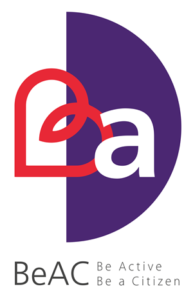No products in the basket.
 In many EU countries the topic of active citizenship in youth education is often understood more as learning ‘about’ active citizenship rather than learning ‘to be’ active citizens.
In many EU countries the topic of active citizenship in youth education is often understood more as learning ‘about’ active citizenship rather than learning ‘to be’ active citizens.
Indeed, in the field of citizenship education, educational practice still places the main emphasis on transferring knowledge, that is, the cognitive aspect of learning even though it would be important to teach skills as well, such as analytical and argumentative skills (A Europe of Active Citizens, 2010). Among those, an emphasis should be made on critical thinking skills that can assist with ethical decision making and reasoned argumentation. According to researchers, these are particularly necessary in times of uncertainty. Indeed, thinking critically supports our wellbeing, our decision-making amidst ambiguous and constantly changing information and our understanding of complex situations. For example, many young people are experiencing this in light of Covid-19, where there is a need to be able to process change and to deal with a significant amount of new information to be discerned. On the other hand, critical thinking skills are also important for active citizenship as they are needed to allow democracy to work well (Kinkead, 2020). Indeed, according to this author, critical thinking can help us ask better questions, uncover our assumptions, overcome systematic biases in our reasoning and reframe issues in ways that can take advantage of the essence of democracy, that is epistemic (i.e. the knowledge-producing potential of democratic decision-making processes).
Objectives
The project titled “Be Active, Be a Citizen” (BeAC) aims to develop training resources to help young people, aged from 15 to 24, living in disadvantaged neighbourhoods to acquire and put in practice critical thinking skills. Indeed, according to the Council of Europe, this target group face discrimination, prejudice and isolation that make it harder for them to be active citizens. In order to achieve the above-mentioned objective, the project will train professionals, including youth workers, teachers, social workers, mental health professionals, VET providers, and volunteers working and supporting young people with fewer opportunities. The project will build the capacities of the professionals, so as they can support young people in acquiring and developing their critical thinking skills and to apply them in active citizenships practices on three specific domains, identified as priorities in the current historical context and part of the Eleven goals for the European youth strategy 2019-2027
- Environmental citizenship (i.e. young person’s responsibility to maintain ecological integrity and the right to exist in a healthy environment)
- Democratic citizenship at the EU level (active participation by young persons’ in the system of rights and responsibilities of the EU)
- Social citizenship (the behaviour between individuals in a society) and the Coronavirus restrictions
The methodology upon which the training resources will be based on two innovative pedagogical approaches:
- The first one is philosophy for community (P4C). This practice is
based on Matthew Lippman’s Philosophy for Children adapted to the use with adolescents and young adults. The method is based on the use of videos, pictures or stories as stimuli for conversation. Following that, participants start inquiring and, supported by a trained facilitator, they begin to discuss topics emerging from the stimuli, actively participating in a process of construction and de-construction of knowledge.
- The second one is Artful Thinking (AT). An educational methodology originally developed by Harvard Project Zero. The purpose of the Artful Thinking Program is to use visual arts to develop thinking dispositions that support thoughtful learning. While AT was originally developed to be used in formal educational context, in the framework of the project it will be adapted for the use in the informal education setting.
The project is funded by the European Union’s Erasmus + program, has a duration of 24 months (January 2022 – January 2024) and is implemented by the Community Support Foundation as a coordinator, in partnership with the following organizations:
❖ @IASIS (Greece)❖ ANZIANI E NON SOLO SOCIETA COOPERATIVA SOCIALE (Italy) ❖ K.S.D.E.O. EDRA (Greece) ❖ ASOCIATIA HABILITAS – CENTRUL DE RESURSE SI FORMARE PROFESIONALA (Romania) ❖ CENTER FOR DRAMA IN EDUCATION AND ART CEDEUM (Serbia) ❖ REDIAL PARTNERSHIP CLG (Ireland)
